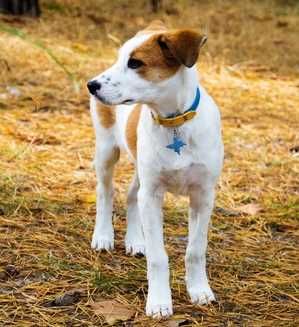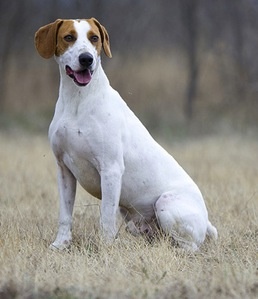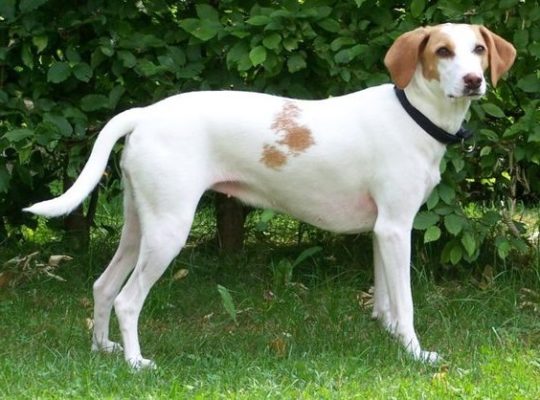Istrian Short-haired Hound
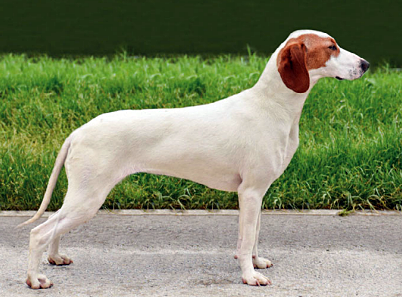
The Istrian Short-haired Hound is a typical hunting dog, agile and with a stubborn disposition. The pet is calm, friendly to people without showing aggression. You can take the dog not only for hunting but also as a loyal household companion. The representative of the breed quickly becomes attached to the owner and is affectionate to children.
Table of Contents
Breed Information
| Another Name | Istrian Shorthaired Hound, Istarski Kratkodlaki Gonič |
| Origin | Croatia |
| Height | Males 50-56 cm Females 44-50 cm |
| Weight | 14-20 kg |
| Fur | Short |
| Color | White, ginger on a white background |
| Lifespan | 12-14 years |
| FCI Classification | Scent hounds and related breeds |
| Group | Hunting dogs, dogs for children |
| Price | $700-1300 |
Breed Photos
Origin History
The Istrian Short-haired Hound is one of the oldest dog breeds. The four-legged hound gained popularity on the island of Istria. The breeding of these dogs began in Slovenia and then in Croatia. The ancestors of the Istrian Short-haired Hound are considered to be the European hound and the Phoenician hound. The breed made its debut at a show in Vienna in 1866. In the Fédération Cynologique Internationale, the dogs were approved in 1973.
Appearance
A dog with a strong build of an elongated rectangular format. The head is heavy and long. It has medium-sized ears hanging along the cheekbones. It is a well-built dog with a broad chest and taut belly. The hound’s back is also straight and broad. The limbs are muscular and strong with round paws. The breed has large dark eyes. The coloration is predominantly white. Red spots on the forehead and body are allowed, while the ears are usually light red. The coat is short and silky, shiny and tight to the body. The hound’s tail is thick at the base, held rather low.
Character
The Istrian Short-haired Hound is a typical hunting dog, agile and with a stubborn disposition. The pet is calm, friendly to people without showing aggression. You can take the dog not only for hunting but also as a loyal household companion. The representative of the breed quickly becomes attached to the owner and is affectionate to children.
The Istrian Short-haired Hound is a proud dog. Do not raise your voice at him and under no circumstances use brute force. To establish an understanding with your dog, devise a game to interest him in the exercise.
Care
It is problematic to keep a dog in a regular apartment. All because of the need for a large living space. The hound must get enough exercise in the open area. All this is vital for the pet. The ideal place of keeping is an aviary in the countryside.
This breed of dog does not require special care. It is enough to check the eyes and ears. The dog’s hair is unpretentious; comb it 1-2 times a week with a stiff brush.
Training
Representatives of the breed need early socialization. It is due to the strong hunting instinct of the Istrian Short-haired Hound. You need to be careful when walking and hold the leash to avoid the pet chasing some small animal.
The Istrian Short-haired Hound is a naturally stubborn dog, which requires special training skills from the owner. It is necessary to compensate for the high need for physical exertion by taking at least three long walks a day. It’s not a bad idea to take your pet for a run. Allow at least one hour of exercise each day.
Common Diseases
Due to its stable genotype, the Istrian Short-haired Hound rarely gets sick. Dogs are not susceptible to hereditary diseases. However, members of the breed can get sick:
- hip dysplasia;
- musculoskeletal disorders;
- urolithiasis;
- gastrointestinal problems;
- infectious diseases of the eyes and ears.
Gastrointestinal problems and urolithiasis occur with improper nutrition. Infectious diseases of the eyes and ears occur with improper care. Contact your veterinarian immediately at any suspicion of illness.
Nutrition
The Istrian Short-haired Hound is an energetic and agile dog that needs a balanced diet. He should get vitamins and minerals with his food. Fresh fruits, vegetables, and cereals, rich in fiber and micronutrients, support immunity. Dairy and fermented dairy products contain calcium. It has a positive effect on the condition of the four-legged dog’s bones. Give your dog cottage cheese, milk, cook porridge on its basis.
Don’t forget about meat, fish, and by-products for the normal functioning of your dog’s body. If you don’t have time to prepare natural food for your pet, buy complex dry food. These contain essential vitamins to keep your pet’s immune system strong.
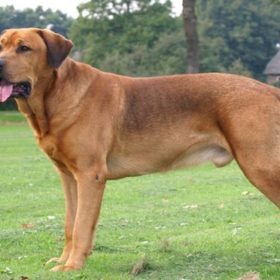 Broholmer
Broholmer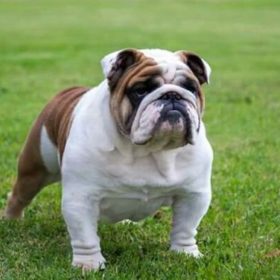 Bulldog
Bulldog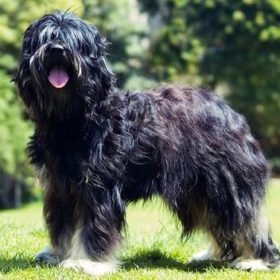 Portuguese Sheepdog
Portuguese Sheepdog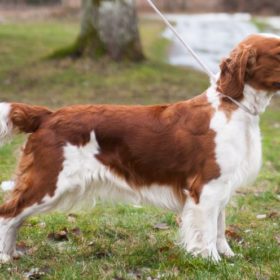 Welsh Springer Spaniel
Welsh Springer Spaniel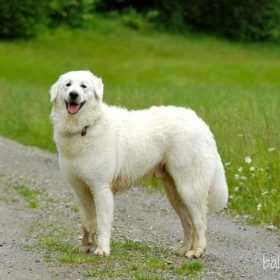 Kuvasz
Kuvasz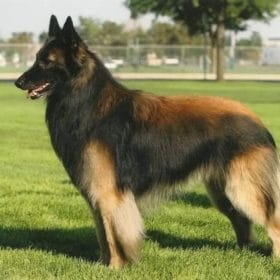 Belgian Shepherd Tervuren
Belgian Shepherd Tervuren